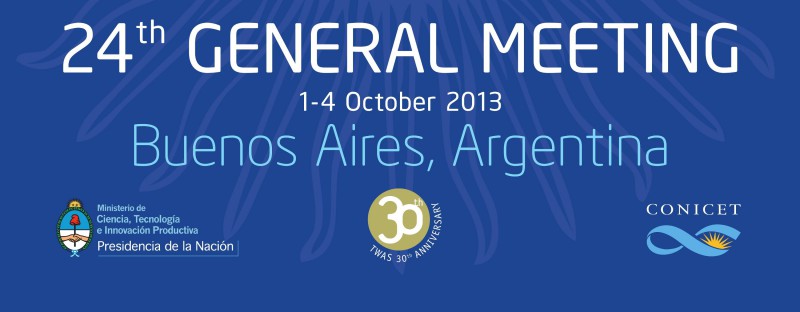More than 300 researchers, science policy officials and educators from the developing world – including several top-ranking science officials – convened for the 24th General Meeting of The World Academy of Sciences in 2013. The meeting, in Buenos Aires, Argentina, was a celebration of TWAS's 30th anniversary, and it explored new research and compelling challenges in science and engineering. Discussions ranged across the fields of science and engineering: Innovation in Latin America. Cancer research in Africa. Neuroscience. Biotechnology for agriculture. The social science of poverty. Science communication.
The meeting was co-organized and supported Lino Barañao, minister of Argentina's Ministerio de Ciencia, Tecnología e Innovación Productiva, and the Consejo Nacional de Investigaciones Científicas y Técnicas, or CONICET. Key support came from TWAS Vice President Francisco Barrantes, a neuroscientist with the Pontifical Catholic University of Argentina. The event featured the first-ever TWAS-Lenovo Science Prize, awarded to pioneering Chilean physicist Claudio Bunster, as well as 12 TWAS Prizes for Scientific Excellence. Special awards for services to TWAS were given to Immacolata Pannone, a scientific expert with the Italian Ministry of Foreign Affairs, and Fu Shuqin, director of the TWAS Regional Office for East & Southeast Asia and a longtime TWAS leader in China.
The Academy also elected 52 new fellows and premiered its new documentary, "Seeds of Science", about how scientists associated with TWAS are transforming agriculture in Kenya.
Photos from the meeting are available on Flickr.

